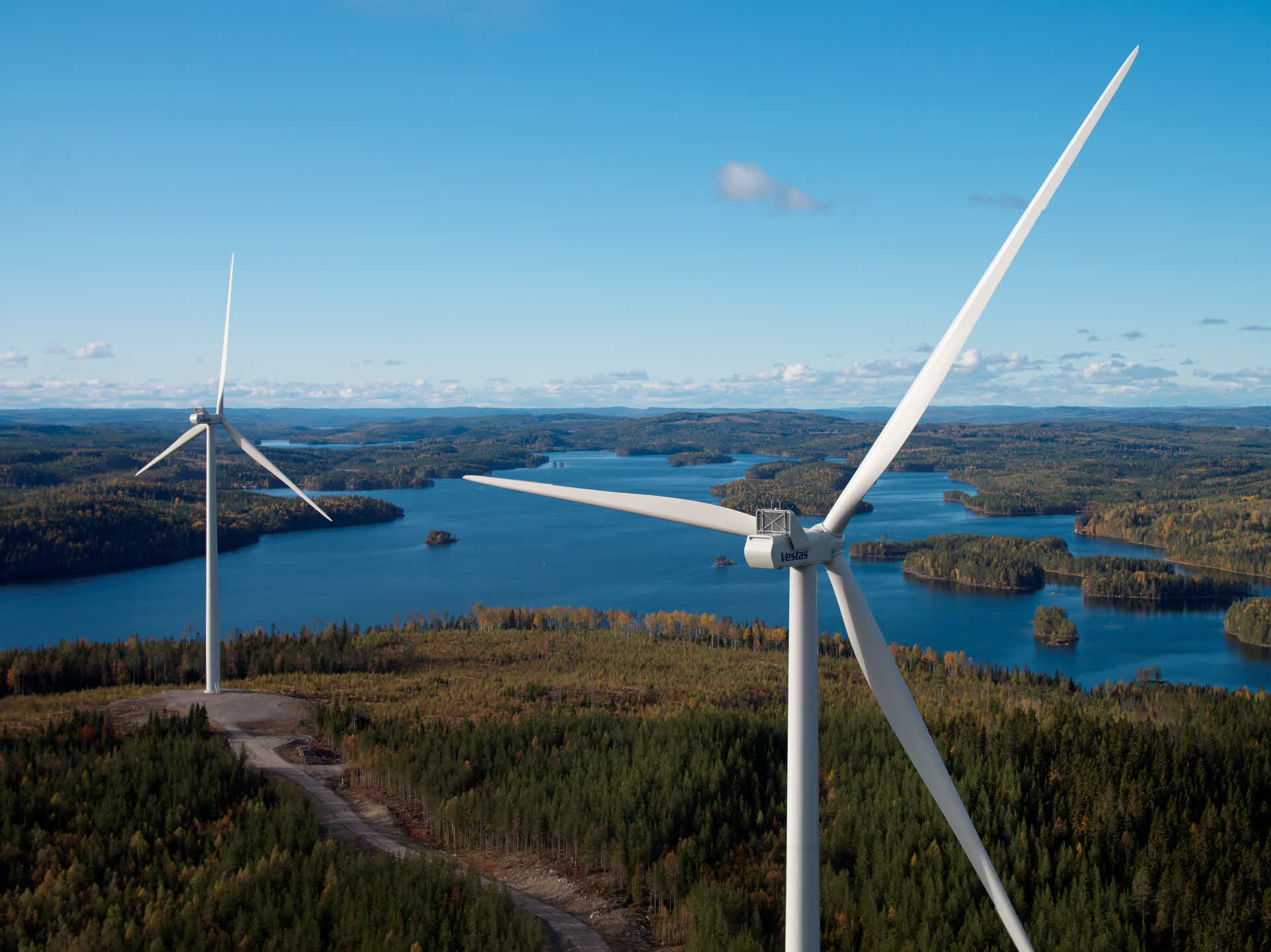
Municipalities should earn money from more wind power
- News
- Renewable Energy
Returning state tax revenues from wind power to the municipalities where the power is produced, would provide municipalities with a new stable source of income on which to build services and welfare services.
That’s the opinion of local politicians in Norrland, according to a new survey.
“This would be a logical and wise reform. It would have been easier for the municipalities to see an upside in the expansion of the forestry industry if they actually got a share of the tax that is collected,” says Jon Persson, President of SCA’s Wind Power business unit.
SCA has previously announced plans to invest in its own wind farms. There’s potential to generate around 65 TWh from wind on SCA land, but due to various types of vetoes and over-implemented environmental regulations, that potential is reduced to around 15 TWh.
A significant factor is the municipal veto. Municipalities have the right to deny permission for wind farms, a right that is frequently exercised.
SCA commissioned research company Axiom to conduct a survey in which municipal politicians from Norrbotten, Västerbotten, Jämtland and Västernorrland expressed opinions on issues relating to wind power.
The results of the survey are pretty clear. Of 307 politicians who responded, 82 per cent agree fully or partially with the statement that it is difficult to determine how municipalities benefit from wind power.
At the same time, 87 per cent believe that the tax system should reward municipalities that have electricity production and 58 per cent believe that people would be more positive about the expansion of the forestry sector if a system for financial compensation for municipalities with wind power was introduced.
“It’s pretty clear that if you want more renewable electricity production through wind power, it also needs to be sustainable for municipalities in the long term and offer a clear financial benefit. That’s not the case today, and therefore many municipalities say no,” says Persson.
When local politicians can choose a maximum of three models from several different proposals, it appears that getting a share of the tax from the sale of electricity, (58 per cent), and taking a share of property tax from electricity-producing sites, (48 per cent), are the proposals that attract the most support.
On average, municipal politicians believe that municipalities should be allowed to keep approximately 50 per cent of the tax revenue. A significant proportion of politicians believe that this would benefit the local economy (73 per cent), would be favourable for electricity prices and make their own region attractive for investment (72 per cent), and lead to a faster climate transition for municipalities (65 per cent).
A relatively large proportion, 58 per cent, believes that this would improve residents’ access to public services.
“Sweden needs more electricity and it needs it fairly quickly to meet demand from industry. There is also widespread consensus that electricity should be fossil-free. This is a bottleneck in the system that it should be possible to address; by increasing electricity production and giving municipalities a new source of income, we can build long-term local economic sustainability,” says Persson.
Windpower on SCA's land, photo in this webarticle: Torbjörn Bergkvist.
A government review is currently underway into “strengthened incentives for expanded wind power”. The review has received an additional directive which states that the task of assessing whether the financing of proposals should be done via the state budget or by operators is removed.
Instead, it emphasizes that financing must come from operators.
“Unfortunately, we believe that the addition is a misstep that risks undermining the admirable ambitions of the original review. If the government wants to increase electricity production, it should not create new costs for investment; rather, it should redistribute tax revenue that is already collected and ensure that municipalities get their share of the cake,” says Persson.
The review’s final report is due to be presented no later than March 31, 2023.